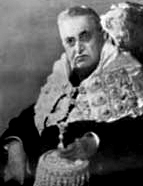

A symbolic award, JMR had already had the privilege, in 1925, of inaugurating the chair of Camonian Studies at the Faculdade de Letras da Universidade de Lisboa [School of Arts and Humanities of the Univrsity of Lisbon] (and would retain this position after his retirement). It was like the conversion and consecration of the free courses he had been offering. And although he asserted that the chair seemed destined for Carolina Michaëlis de Vasconcelos, he sought to emphasise the distance that separated him from the “Master”. In his preface to A intercultura de Portugal e Espanha no passado e no futuro. Conferência plenária [ ] (1921), the “illustrious professor” applauded those who, in establishing “facts, replace fanciful legends and arbitrary interpretations with documented history” (p. XV); “Hispanophile” (p. XIV), she repudiated the “timid distrust with which many would wish to close the borders to prevent foreign infiltration, for fear that it might denationalise literature” (p. XXXIV). Was he merely targeting Teófilo Braga? At the other end of the spectrum, the “Inaugural Lecture of the Chair of Camonian Studies” was an affirmation by a determined JMR to “investigate” Camões’ love affairs (p. 90) and to protest: “Camões is, from the first to the last stanza of his poem, the singer of the Portuguese homeland, the singer of the Lusíadas, and not of the Iberians or the Hispanics. The Lusíadas are solely and exclusively the Portuguese political Bible.” (1927, p. 79).
JMR does not usually offer extensive praise to his peers. Yes, he takes pleasure in saluting figures such as Afrânio Peixoto and Francisco Rodríguez Marín. In his “Inaugural Lecture”, he pays “tribute to [his] boundless admiration” for Carolina Michaëlis and, without glossing over their differences, evokes Teófilo Braga and Epifânio Dias as “two notable masters” (1927, p. 68). In articles in memoriam, he praises Luciano Pereira da Silva (1927) and once again praises Carolina Michaëlis, but the orientation of this text is symptomatic (“D. Carolina Michaëlis e os Estudos Camonianos”, 1927). JMR is torn, on the one hand, between the desire to have the authority of the highly prestigious philologist on his side and, on the other hand, a tension that he cannot or does not want to hide in his references to “foreign Camonists” (especially Wilhelm Storck) who, “to our shame”, point out in Camões’ work “crass errors” (p. 47) committed in its transmission: “It was from Germany – it is not very flattering for us to have to admit it, but justice demands it – it was from Germany that the reaction against this incredible lack of critical sense came” (p. 53). Had it happened earlier, perhaps the arrival on the scene of Afonso Lopes Vieira might have mitigated divisions and brought JMR and Carolina Michaëlis closer together. In this supporter of Lusitanian Integralism, JMR gained a “valuable collaborator” from the mid-1920s onwards. It was a turbulent period, with no shortage of critics – some eager for controversy, such as A. Sousa Gomes, who was adamant that Ilha dos Amores was set in the Azores (Hernâni Cidade, “Estudos Camonianos. A última polémica do Prof. José Maria Rodrigues” [Camões Studies. The latest controversy involving Prof. José Maria Rodrigues]).
This work is financed by national funds through FCT - Foundation for Science and Technology, I.P, in the scope of the projects UIDB/04311/2020 and UIDP/04311/2020.
